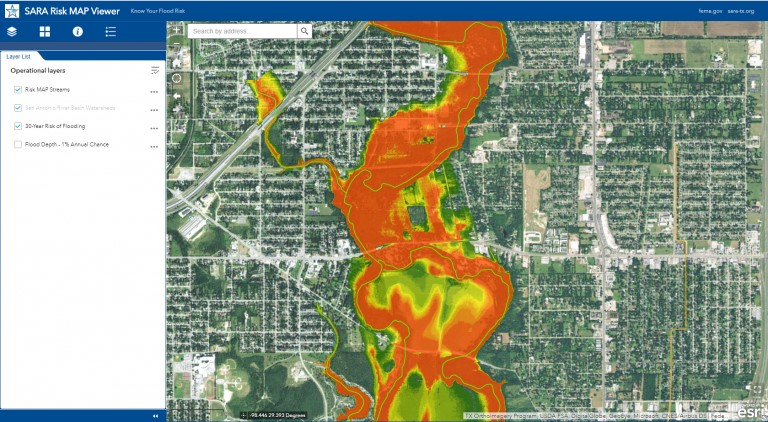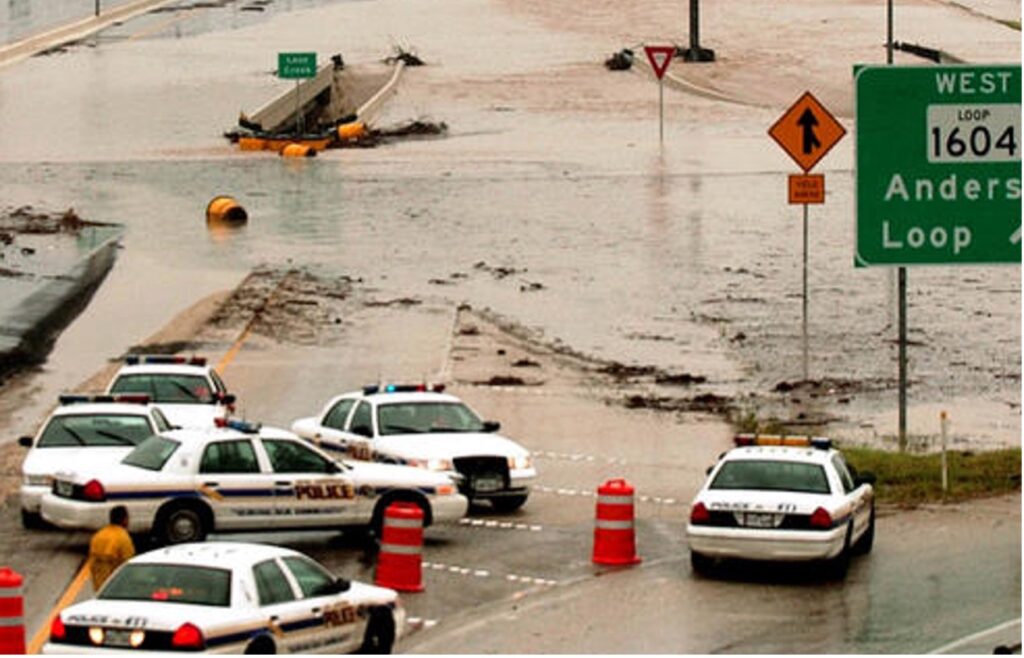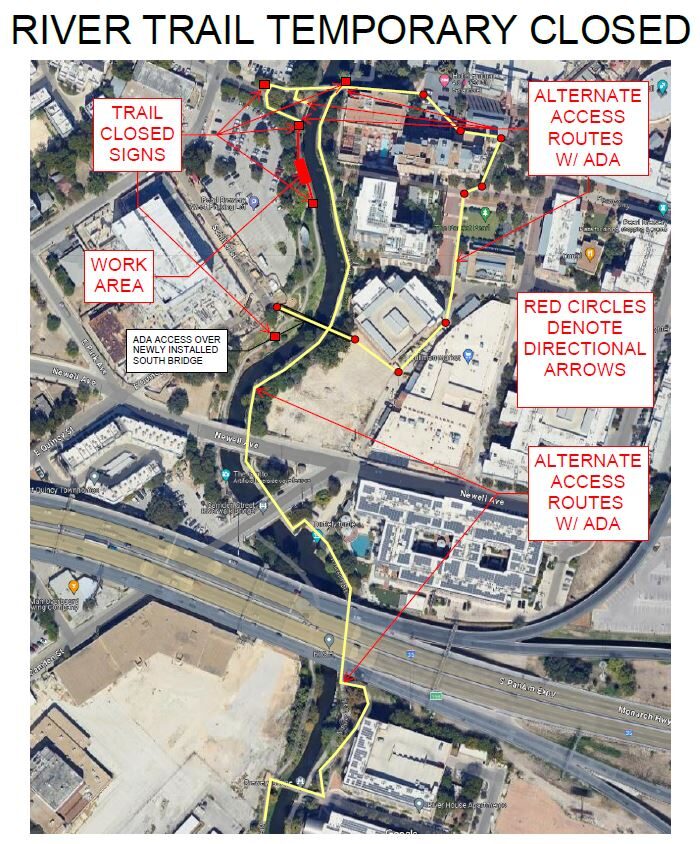Last Updated on January 30, 2024
Within the San Antonio River Basin, the City of San Antonio and Bexar County have a long history of flooding, particularly flash flooding. As part of Flash Flood Alley, this large metropolitan area is one of the most flood-prone regions in North America. This is due to several factors, including geography, climate, and urbanization. The result is deep, fast, and erosive floodwaters that can potentially affect communities downstream, threatening lives and property throughout the basin, particularly in Bexar County, where urbanization can increase runoff up to 6 times over what would occur in natural areas. These flash flood events can occur within minutes to a few hours following a heavy rainfall event and, unfortunately, have included fatalities. In fact, floods and flash floods are some of the most fatal weather events in the U.S.
Flood management and risk reduction
Public safety through flood risk management is a top priority for the San Antonio River Authority. With documented increases in the intensity and destruction of major storms, such as Hurricanes Harvey and Ian, the most cost-effective way to prepare and respond to the impact of these storms is to ensure that hydraulic and hydrology information, rainfall data, land use changes, floodplain maps, watershed master plans, and capital improvement master plans stay current. The River Authority works with various local, county, and federal government collaborators to make the San Antonio River Basin safer from flooding. We do this by using scientific and engineering expertise to develop that data that supports other community funding decisions related to the development and implementation of flood mitigation projects. For 85 years, since the River Authority’s creation in 1937, cities and counties in our District and the Federal government, have relied on our engineering and technical expertise in flood management and risk reduction.
The River Authority manages and operates 41 floodwater retention dams throughout the San Antonio River Watershed, including this one in Eastern Bexar County. Dams are designed to re-direct and manage the flow of water, diverting it from inundating neighborhoods where people and property are dense.
Increase Your Flood Risk IQ with River Authority Resources
- BexarFlood.org, a site funded by Bexar County and operated by the River Authority, shows the road conditions of monitored low water crossings across Bexar County. By subscribing to alerts through this website, you can receive text or email alerts when low water crossings you choose to monitor have water over the road.
- Check out the River Authority’s Floodplain Viewer and Risk MAP viewer, which allows a property owner to determine the level of flood risk across the life of the 30-year mortgage. The River Authority has invested considerable resources in developing updated floodplain maps throughout Bexar, Wilson, Karnes, and Goliad counties. This investment, combined with our expertise, has produced some of the highest quality floodplain maps in the United States.

- Test your flood risk knowledge by taking our pop quiz!
- Request a community presentation to learn more about the River Authority’s efforts to keep our communities safe.
Should I get flood insurance?
According to FEMA, there is some level of flood risk, no matter where you live or work. In fact, about 25% of all flood insurance claims come from areas with minimal flood risk. Therefore, the River Authority supports FEMA’s recommendation for homeowners to participate in the National Flood Insurance Program even if they are not required by their mortgage company to have flood insurance. The River Authority has included a grade for community flood insurance participation in the San Antonio River Basin Report Card, and unfortunately, the grade for this metric is an F, which indicates a significant amount of uninsured properties throughout the basin. Check out our website to learn more about obtaining flood insurance. Together, we can all do our part to make safety a priority.
The River Reach is back!
River Reach is a quarterly, 12-page newsletter that is designed to inform the San Antonio River Authority’s constituents about the agency’s many projects, serve as a communication vehicle for the board of directors and foster a sense of unity and identity among the residents of Bexar, Wilson, Karnes, and Goliad counties.
If you wish to be placed on the mailing list for River Reach, please contact us or complete the form.





